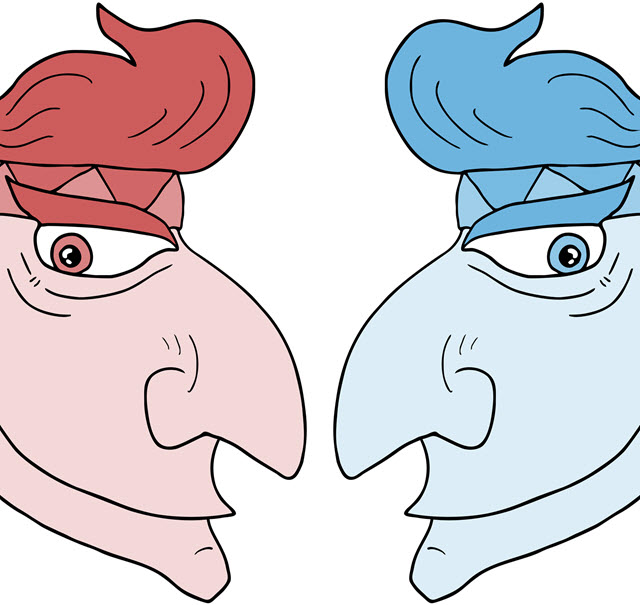
didn’t get much sleep after her son was born. “When I was diagnosed, I learned that the sleep issues were part of having bipolar disorder.” “For a long time, I tolerated because I thought it was normal for me,” says Pam, who was diagnosed with bipolar. She sleeps fewer than six hours a night during manic episodes and upwards of nine hours a night (plus naps) when she’s depressed. Pam H., a retiree in Westminster, Maryland, has no idea how long her REM and NREM stages last what she does know is that her mood affects her sleep patterns. “We know that sleep disturbance isn’t just an effect of mood disorder, it can also be the cause,” notes Moscovitch.

It’s unclear what triggers the changes in REM and NREM sleep but the research is clear: Those changes are linked to both manic and depressive states in bipolar disorder, according to Adam Moscovitch, MD, medical director of the Sleep and Fatigue Institute and associate clinical professor of psychiatry at the University of Calgary.

In a manic state, the length of REM sleep is decreased while in a depressive state, REM is increased, according to a study published in the December 2010 issue of Journal of Sleep Research. It appears that bipolar disorder affects both the REM and NREM stages. It’s the stage when the brain is active and dreams occur. The first REM state kicks in about 90 minutes after falling asleep and recurs at 90-minute intervals throughout the night. NREM is the first stage-the period of drifting off to sleep. Research shows that there are changes in the sleep architecture-or the distinct phases of sleep-in those living with bipolar.ĭuring the night, sleep moves between two stages, REM (Rapid Eye Movement) and non-REM, or NREM. In fact, it’s not just the desire to sleep too much or too little that characterizes bipolar disorder. The opposite is true during a depressive phase when their bodies and minds crave more than eight hours of sleep a night, whether or not there is still a biological need for sleep. In a manic or hypomanic phase, sleep tends to take a backseat to wakefulness, either because those living with bipolar are too alert or productive to want to go to bed, or because their mood makes them believe sleep is unimportant and therefore a few hours per night can feel sufficient. It’s also the time when tissue growth and repair occurs, hormones that promote muscle development and growth are released, and energy is restored.įor those living with bipolar, it can be difficult to sleep for the recommended eight hours per night, in part because the desire to sleep-or not to sleep-changes depending on mood. The National Sleep Foundation describes sleep as a state of deep relaxation when breathing slows, blood pressure drops, and muscles are relaxed. The Science of SleepĪ good night’s sleep is about more than crawling under the covers and drifting off to dreamland. In the most comprehensive research on the link between bipolar disorder and sleep disturbances, a study published in the Journal of the American Medical Association, found that 40 percent of participants with insomnia and 47 percent with hypersomnia, or excessive sleepiness, had a mood disorder compared with just 16 percent of those with no sleep disturbance. “For those living with bipolar disorder, sleep disruptions can have adverse effects and could trigger depression or mania.” “There is a strong relationship between our sleep patterns and the regulation of mood,” Lilie explains. In some studies, up to 94 percent of those living with bipolar disorder reported sleep disturbances. Sleep disturbance is one of the hallmarks of mood disorders, including bipolar disorder, according to Jamie Lilie, PhD, a licensed clinical psychologist, board-certified in sleep disorders medicine, and associate professor of psychology at Argosy University in Schaumburg, Illinois. It wasn’t until he was diagnosed with bipolar disorder in 2003 that Will learned his sleep habits could be linked to the illness. He averaged six hours of sleep per night, dropping to as few as two hours a night if he was under stress. Those sleepless nights followed him into adulthood, leading Will to believe that he required less sleep than others.

As a child, he struggled to fall asleep when his parents declared it was bedtime and he would often lie in the dark, wide awake. “I’d rather be productive, doing things, instead of going to bed.”

BIPOLAR INSOMNIA HELP SOFTWARE
“It feels like a waste of time to be sleeping,” admits Will, 59, a software developer in Okotoks, Alberta.
BIPOLAR INSOMNIA HELP TV
He prefers catching up on work, logging a few hours on his flight simulator, or watching late-night TV to crawling under the covers and counting sheep. Struggling to Fall Asleep or Not Wanting to Sleep at All
BIPOLAR INSOMNIA HELP HOW TO
Find out what’s causing your sleep disturbances, how to get some rest, and why good sleep hygiene is the keystone of bipolar mood management.


 0 kommentar(er)
0 kommentar(er)
